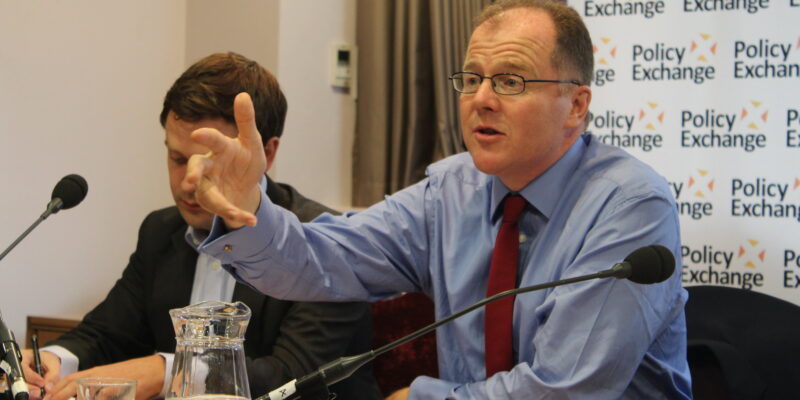Where does the Labour Party stand on immigration policy after its conference?
The party’s grassroots will strongly oppose any return to the bad-old-days of Labour immigration policy

The Labour Party’s 2019 conference backed a radical motion committing the party to defending freedom of movement as the UK left the EU – and, in principle, extend it to other countries and regions of the world. In his 2020 leadership election, Keir Starmer also ‘pledged’ to ‘defend free movement as we leave the EU’.
Although as with many of the other pledges he made during the campaign, he has since pulled back from this policy. At this year’s Labour Party conference, a number of Shadow Cabinet members, such as Lisa Nandy and Rachel Reeves, reiterated there would be no re-opening of the issue of freedom of movement with the EU under a future Labour government.
But as Britain’s supply chain crisis rumbles on – with everything from fuel shortages to the Christmas turkey impacted – the Labour party have come under increased pressure to reconsider their position.
David Gauke used his New Statesman column to call on Starmer to show ‘courage’ in his approach to Brexit. The former Conservative Party MP pointed out the fact the Labour leader has a track record of taking policy positions which contradict his current stance is not a good look – and added that a prime minister in waiting ‘should be able to lead public opinion, to be prepared to provoke disagreement and to take calculated risks in the national interest’.
The likely future German Chancellor, Olaf Scholz, whose centre-left party, the SPD, came first in the recent federal elections, also joined the debate, putting the blame for Britain’s labour crisis firmly on the shoulders of the UK’s decision to end freedom of movement with the EU.
Labour conference reaffirms party support for progressive approach
These views reflect the concerns of the business community and the consensus amongst the UK’s European allies, respectively. And at the conference in Brighton activists were opening another front of challenge to the Labour party leadership.
Although in the arcane ‘compositing process’, the commitment to freedom of movement in the original resolution was removed, conference delegates showed how the party remains firmly committed to supporting radical reform to UK immigration policy. Human and labour rights are fundamental for activists, not big business interests.
Although not binding on a future Labour manifesto, the conference called on party leaders to:
- End immigration detention for asylum seekers and accommodate them in the community where they can access support;
- Provide safe and legal routes for asylum seekers to reach the UK;
- End the ‘hostile environment’ policies that led to the Windrush crisis;
- Give asylum seekers a right to work in the UK from day one of their arrival;
- And strongly oppose the government’s Nationality and Borders Bill, including implementing the UNHCR’s recommendations for a progressive alternative.
The proposal lays down a clear progressive marker for a Labour offer at the next general election – and underlines the risks for the party leadership if it passively accepts, rather than confronts, the authoritarian right’s agenda.
These are the people who will elect a future Labour leader, despite the rule changes seen at this year’s conference. And looking only at the party’s internal factionalising can disguise the overwhelming points of agreement amongst this grassroots. As a recent analysis by Professor Tim Bale for Political Quarterly argued, ‘although one cannot dismiss or discount the ideological divisions between Labour members, too much focus on them risks blinding us to the reality that the overwhelming majority of them are pretty left-wing and socially very liberal.’
The campaigners behind the motion also argue that their principled approach aligns with a very large majority of party members. Ana Oppenheim, an activist with the Labour Campaign for Freedom of Movement, said:
“By choosing to discuss this motion, and then so overwhelmingly voting it through, Labour members have once again shown that migrant rights are a priority for us. While the leadership managed to cut out some of the more radical elements, the policy still includes a range of hugely important measures – from strongly opposing government and media attacks on migrants and refugees, to scrapping the ‘hostile environment’.
“In the face of Priti Patel’s inhumane plans for asylum reform, Labour needs to defend migrants. The party needs to actively campaign against racist policies, and use its platform to challenge prejudice. While the Tories want to divide us by nationality, Labour should point to the real divide: between the privileged few who are hoarding wealth and power, and the vast majority. There is no standing for the working class without standing with migrants, who make up a significant part of it.”
October 4, 2021
Brexit Spotlight is run by Another Europe Is Possible. You can support this work by joining us today. The website is a resource to encourage debate and discussion. Published opinions do not necessarily represent those of Another Europe.





